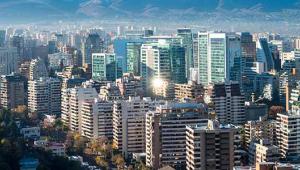The IDB has approved the allocation of $100m to support programmes in Latin America aimed at helping communities cope with an upsurge of migrants and contribute to their development.
The bank’s special grant grant facility will be used in combination with existing development loans to help host countries improve access to health, education, housing, security, and other services in communities struggling to look after the new arrivals.
“Latin America has welcomed migrants throughout its history, and indeed many communities have shown great generosity and solidarity in receiving families who often arrive in desperate conditions,” said Antoni Estevadeordal, the Special Advisor at the IDB who coordinates the initiative.
“Over time, migrants can help make communities more dynamic and prosperous.
“However, if not adequately managed in the short term, these inflows can strain public services and fiscal budgets, impact labor markets, and generate political tensions.”
The IDB’s special grant facility was created in 2007 to deal with special circumstances and so far has supported investments in Haiti.
It has now been expanded to include support for countries dealing with what bank officials call “sudden and massive” migration inflows in the Latin American and Caribbean region.
The IDB will provide $100m from its grant facility, with additional resources likely to be provided by the donor community, and grants will be combined with regular IDB loan operations of $800m.
There has been a spike in migration to neighbouring countries within both Central America and the northern part of South America.
Since 2015, 3.5 million migrants from Venezuela have crossed into neighbouring countries, and the UN projects that by the end of 2019 there will be 5.4 million Venezuelans living in other Latin America and Caribbean states.
Migration flows from Haiti, Nicaragua and the 'Northern Triangle' countries of Central America are also accelerating, placing pressure on public services and underscoring the need for a regional response to the migration crisis.
Estevadeordal added: “This initiative will help local and national governments implement comprehensive development programs that facilitate the social integration of migrants into communities, so that they can actively contribute to their overall well-being.
“In a nutshell, the bank wants to help turn this challenge into an inclusive development opportunity for our region.”
The United Nations and civil society organisations are already providing immediate humanitarian aid to migrants, which is delivered mainly through national and local governments.
Earlier this year the IDB created a dedicated team and an inter-departmental task force to coordinate the bank’s response to the migration crisis.








